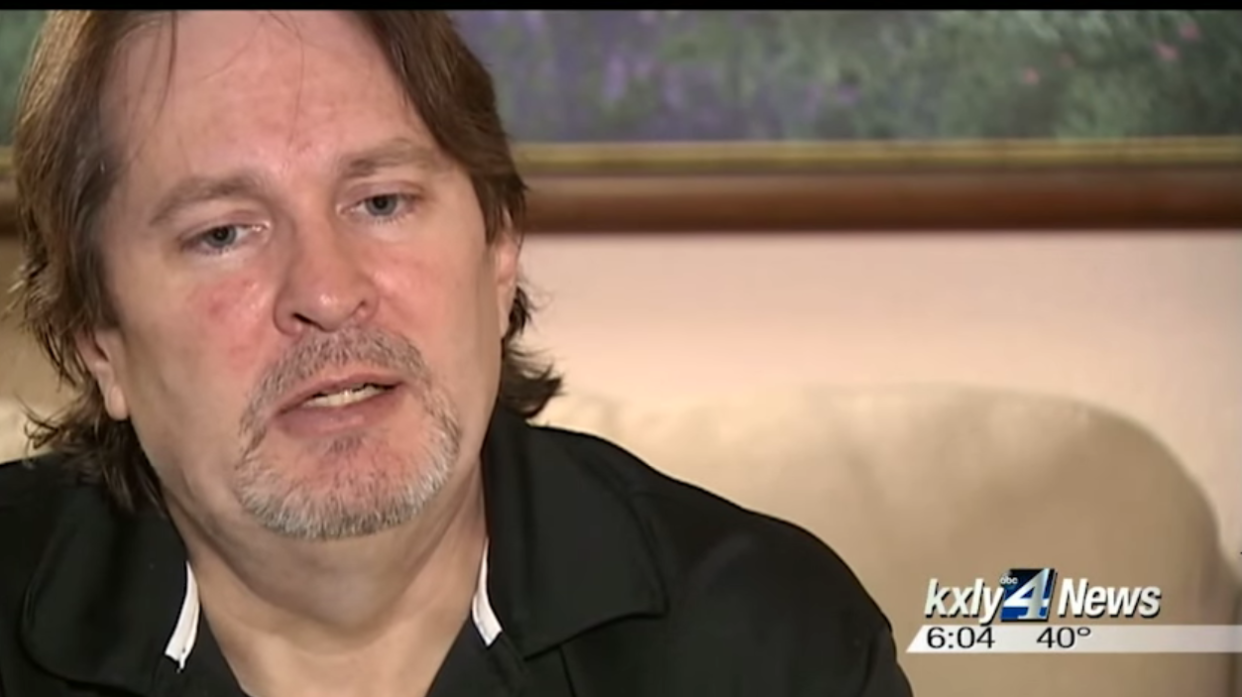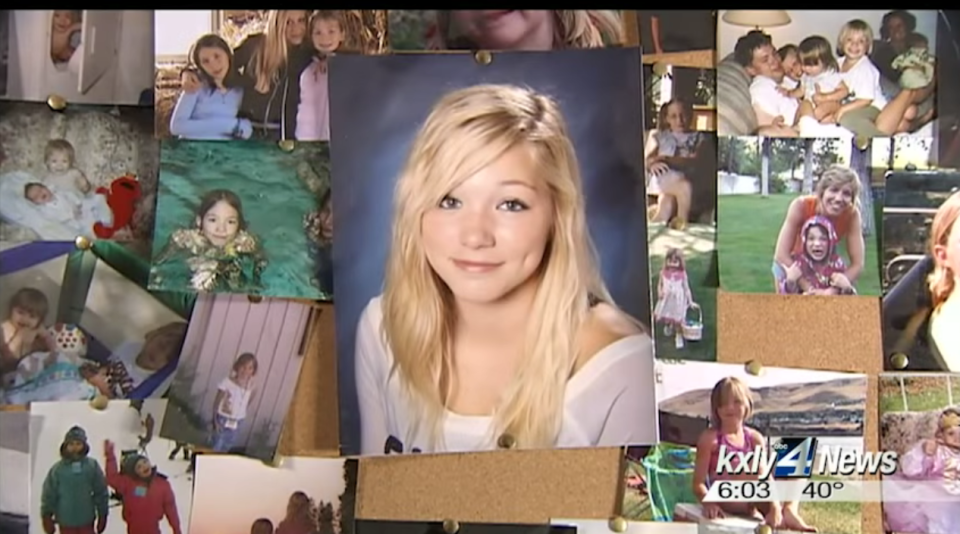Why This Dad Couldn’t Save His Daughter From Heroin — Even After Alerting Cops

A father who lost his teenage daughter to a heroin overdose is speaking out about his desperate efforts to help get her into recovery — an attempt, he says, to raise awareness, and hopefully save the life of someone else’s child.
“I went to give her a kiss on her forehead and her eyes were open, and that’s something that will never ever leave me — to look into the lifeless eyes of your own daughter,” Scott Myers, of Spokane, Wash., pictured above, told KXLY this week. He was recalling the death of his daughter, Rachel, 18, who overdosed in March while staying at her grandparents’ house. Myers spoke about losing her as part of a local feature about the face of heroin addiction, emphasizing that the laws, he believes, are not on parents’ sides — at least in his state — when it comes to helping kids get off drugs.
STORY: Should Kids Be Trained to Treat Mom’s Heroin OD?
Myers tried various tough-love methods with Rachel — which included trying to force her into a rehab program and also attempting to get her arrested for drug possession as a way to get her into court-forced rehab — but neither tactic worked, he explained.
“They have the right to say yes or no to their own medical care, and so once they’re 13, you can’t force them to get treatment for substance abuse,” the bereaved dad, who could not be reached by Yahoo Parenting, told KXLY regarding Washington’s healthcare law for minors. As far as his attempt to get law enforcement involved, Myers took photos of his daughter passed out on her bed surrounded by used syringes and showed them to police. “If she gets arrested and put in jail,” he explained, “then I know where she is every night, and I know she’s not doing drugs.” But Rachel was not arrested.

Rachel Myers (Photo: KXLY)
Trying to force a teen into rehab through these methods could work or backfire, depending on the individual, explains Joseph Lee, M.D., medical director for the youth program at the Hazelden Betty Ford Foundation. “You do need honey and vinegar,” Lee tells Yahoo Parenting. “But the spirit of approach should always be positive and empathetic, meeting clients where they are at.” And that place for youth, he explains, could be much different than for an adult, who could possible in a bad place financially and emotionally, after a long and difficult road of addiction. “Young people feel invincible,” he says, and using drugs could very well still be a novelty that feels “glamorous,” thereby making it even more difficult to convince them to attend rehab.
STORY: Meet the Woman Who Guides Parents Through Their Darkest Days
Purposely bringing the cops into a situation to facilitate change, Lee says, is an approach that may or may not work. But it’s typically done not as punishment, but rather to keep kids safe, as in Myers’s case. In general, he says, “Parents shouldn’t hesitate to let natural consequences occur,” such as arrests that happen on their own — despite fears of them marring their children’s records in the future — as “you may be enabling them in trying to keep them out of trouble.”
But what about forcing a child, of any age, into rehab before he or she is ready?
“You don’t have to wait for a client to be ready,” Lee stresses. “To assume a person has a static state of mind is faulty, and when a young person has an addiction, they are very capricious. So the concept of ‘readiness’ is actually outdated.” At Hazelden, Lee explains, they do what’s called “motivational interviewing” at an intake session — so if a young person is of two minds about recovery, the line of questioning helps them choose the more productive part of themselves to listen to. “It’s in the haze of drug use that that playing field becomes skewed,” he says.
While parents most often are dealing with their child’s drug addiction once they’ve entered a state of crisis, Lee says, the best thing a mom or dad can do is to catch it early — very early, as in before it begins. “There’s plenty of science that says we can pick out high-risk kids as early as 10 years old,” he says, and so getting wise to the signs is crucial. Part of that is to not focus so much on what type of substance your child is experimenting with — “only” cigarettes and not cocaine, or “only” marijuana and not heroin, for example — but on their behavior or the fact that they’re turning to substances to begin with, and what it means regarding their risk factor.
“Parents should be concerned about why they are using so young, and asking, ‘What does it say about their brain?’” Lee advises, adding that the “No. 1 tools” parents can have for prevention are “a solid relationship, good communication, and strong messaging about them being at risk,” including as discussing it early on if addiction runs in the family, and expressing that their child may want to think twice before engaging in substance use to begin with.
Still, he says, parents like Myers also need to cut themselves some slack. “Don’t worry about when you get involved,” he says. “It’s never too late. Sometimes parents just have to be at peace with the efforts they put in.”
As for Myers, he’s now focusing his efforts on fighting to change the healthcare law and for the creation of lockdown rehab centers in his state. “It’s a cliché,” he said, “but if I can save one child’s life and keep one parent from having to go through what I’ve done, then I feel like I’ve had a modicum of success.”
(Top photo: KXLY)
Please follow @YahooParenting on Facebook, Twitter, Instagram, and Pinterest. Have an interesting story to share about your family? Email us at YParenting (at) Yahoo.com.



